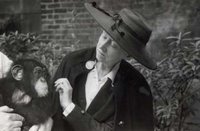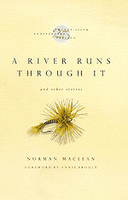 Can writing groups ever produce fine works of fiction or poetry?
Can writing groups ever produce fine works of fiction or poetry?
One key challenge with writing groups is what some people refer to as "writing program syndrome," where participants write to please an appointed leader of dubious taste who doles out emotionally valuable rewards (grades, advancement), plus a group of fellow amateurs who can so often be parsimonious with the desired gift (approval), and generous with many of its antitheses (jealousy, subterfuge, backstabbing, frenemy behavior). These factors often combine to produce safe, bland, barely functional works of fiction and poetry that meet group expectations but wither as art, victims of their own caution and need.
The other challenge is a more overt one: sometimes writers receive so much criticism from the group or the leader that they doubt themselves and stop writing altogether. The poet Marianne Moore told an anecdote to fellow poet Donald Hall in a 1960 edition of
The Paris Review about her translation of La Fontaine's fables. "I'm so naieve, so docile, I do
tend to take anybody's word for anything the person says, even in matters of art." She goes on to tell a story about an editor in charge of translations at Macmillan who advised her to stop translating La Fontaine... to "put it away for a while" because it would take ten years and detract from her other writing.
"What is wrong?" she asked herself afterward, thoroughly shaken from her own judgment that this was a good project for her now, "Have I not a good ear? Are the meanings not sound?" Of course she had a splendid ear, it was the editor who -- French literature degree from Cornell and superior attitude notwithstanding -- intuitively knew nothing. Moore later trusted her own gut and produced the edition with Viking. Today the Macmillan editor is long forgotten, but Moore's fine translation (encouraged by both W. H. Auden and Ezra Pound) lives on.
* * *
With these challenges in mind, however, I do argue that it is possible to create a writing group that produces edgy, important, elegant, ambitious, or otherwise worthy work, and that does so in a way working in isolation can't match. All it requires is talent. I don't just mean talented writers in the group. I also mean a facilitator who is as much artist as administrator, as much participant as organizer, and who furthermore knows how to coax work from colleagues without guiding it in the name of "helping" or otherwise stepping on it. (Yes, you read that correctly, when it comes to art I do not believe it is
ever the facilitator's place to guide, or even to mildly critique, but only to help bring forth. Midwives do not make babies or try to alter them, they merely assist God and nature in delivering them.)
More about this, perhaps, in a future post as we plan writing groups. My stance is radical, but functional. Authors who work in such environs often do publish. Whether the leader has anything to do with that is open for vigorous debate, but what matters is that the authors themselves tend to think so (much as Dumbo the elephant thought the feather helped him fly, although it did no such thing, he flew on his own). At this townhouse, I'm happy to be the feather for others. Just about any working artist with an eye for a gift in others and the good sense to get out of the way can play the feather's part.
 A new book from the University of Chicago Press demonstrates just what a remarkable range of publishing is possible with university presses. Based on a Latin/Old Danish cookbook that may be the oldest surviving manuscript of its kind, this medieval text from 1300 was probably itself translated from an earlier Middle Low German document. It shows us an early example of a remarkable social document that we often take for granted: the written recipe. How many families, dynasties and cultures base so much of who they say they are on the subtleties and nuances of food? Here is what author Robert Applebaum says about this process:
A new book from the University of Chicago Press demonstrates just what a remarkable range of publishing is possible with university presses. Based on a Latin/Old Danish cookbook that may be the oldest surviving manuscript of its kind, this medieval text from 1300 was probably itself translated from an earlier Middle Low German document. It shows us an early example of a remarkable social document that we often take for granted: the written recipe. How many families, dynasties and cultures base so much of who they say they are on the subtleties and nuances of food? Here is what author Robert Applebaum says about this process:














